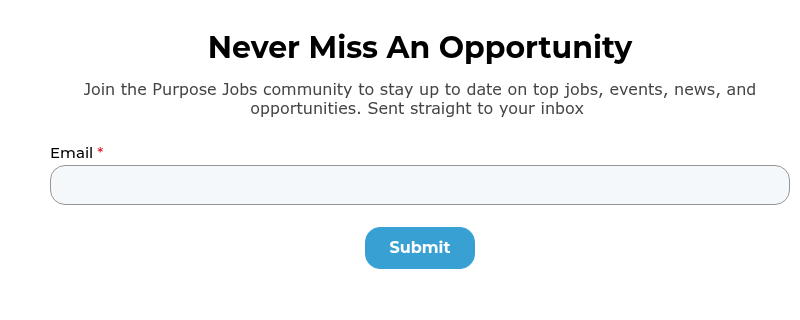There is a surge of interest in careers within the renewable energy sector, driven by both environmental concerns and economic opportunities. The International Renewable Energy Agency (IRENA) reported in 2023 that 13.7 million people work in the industry, with expectations for significant growth in the coming years. Gen Z and millennials are increasingly prioritizing eco-friendly careers, with new research from Deloitte revealing that around 45% of these young workers have left or plan to leave jobs due to climate concerns.
With unprecedented investments in renewable energy infrastructure, supported by government incentives aimed at accelerating clean energy adoption, now is an excellent time to launch a career working with renewables.
At GreenLancer, we’ve had over ten years of experience in the solar energy industry, and we have numerous ideas and suggestions for launching a career in the renewable power sector.
How to Work In Renewable Energy
1. Create a Vision For Your Career in the Renewable Energy Industry
If working with renewable energy resonates with your values and interests, it’s critical to formulate a career vision. As you explore a career in this dynamic field, envision the specific role that aligns with your skills, interests, and values.
Here are some of the career options in renewable energy:
- Finance: Engage in funding and financial management for renewable energy projects, ensuring that sustainable initiatives are economically viable.
- Marketing: Promote renewable energy products and services, raising awareness and driving consumer adoption of green technologies.
- Solar Contractor: Oversee the design, installation, and maintenance of solar energy systems, contributing directly to the expansion of clean energy infrastructure.
- EV Charger Installation: Specialize in setting up electric vehicle charging stations, supporting the transition to electric mobility.
- Information Technology: Develop and manage the technological infrastructure that supports renewable energy systems, from smart grids to solar or wind energy management software.
- Project Management: Coordinate and lead renewable energy projects, ensuring they are completed on time, within budget, and to high standards of quality.
- Sales: Drive the adoption of renewable energy solutions by connecting consumers and businesses with the products and services they need.
- Human Resources: Recruit, train, and retain skilled professionals to support the growth of the renewable energy workforce.
- Manufacturing: Involve yourself in producing renewable energy technologies such as solar panels, wind turbines, and battery storage systems, ensuring high-quality and efficient outputs.
2. Develop Specific Skills for a Career in Renewable Energy
Honing specific skills is essential for creating a successful career path in the renewable energy sector. Whether you’re interested in technology, marketing, engineering, manufacturing, or a related field, finding your niche and developing or expanding on specialized skills can set you apart in this dynamic industry.
- Technology: Be knowledgeable about the latest advancements in clean energy technologies, such as solar power, wind energy, electric vehicles, and battery energy storage. Familiarize yourself with software and tools specific to the clean energy sector, and consider delving into programming and data analytics for energy systems.
- Marketing: Cultivate a deep understanding of green marketing strategies and sustainable branding. Sharpen your skills in digital marketing, content creation, and stakeholder engagement within the renewable energy space.
- Engineering: Acquire a strong foundation in engineering principles, focusing on sustainable design, energy systems, and project management. Consider specializing in electrical, mechanical, structural, or environmental engineering to help with engineering renewable energy projects.
- Manufacturing: Familiarize yourself with the intricacies of renewable energy equipment manufacturing, including quality control, supply chain management, and lean production processes.
If you already have significant expertise in certain areas, it might be possible to hone your skills as it relates to the renewable energy sector. For example, if you are a licensed electrician, you can gain complementary skills specific to solar panel or energy storage system installation.

3. Embrace Education and Training in Renewable Energy
Education and hands-on experience can help advance your career and your earning potential, and there are a variety of ways to approach this.
Formal Education
Pursue a bachelor's degree in a relevant field such as renewable energy engineering, environmental engineering, electrical engineering, mechanical engineering, or sustainable energy systems. Consider further specialization with a master's degree in renewable energy, sustainable energy, energy systems engineering, or a related discipline. Look for programs that offer courses on renewable energy technologies, energy policy, and environmental impact assessment. Likewise, formal education in human resources, accounting, finance, marketing, and electrical work can advance a career in renewables.
Online Courses and Certifications
Enroll in online courses covering the fundamentals of renewable energy, including solar energy, wind power, hydropower, biomass, and geothermal energy. Take courses or certifications focusing on energy policy, economics, and regulation to understand the broader context of renewable energy deployment.
Workshops and Seminars
Attend workshops, seminars, and conferences organized by renewable energy associations, research institutions, and industry stakeholders to stay updated on the latest trends, technologies, and best practices. Take advantage of networking opportunities at these events to connect with professionals in the renewable energy sector and gain insights into emerging opportunities and challenges.
For example, if you want to become a solar energy contractor, there are numerous solar installer training programs through:
- The North American Board of Certified Energy Practitioners (NABCEP)
- Grid Alternatives
- Solar Energy International (SEI)
Internships & Volunteer Work
Seek internships with renewable energy companies, research labs, or government agencies to gain hands-on experience in the renewable energy field. Look for opportunities to work on projects related to renewable energy technology development, energy modeling, or sustainability initiatives. Explore volunteer opportunities with environmental organizations or community groups working on renewable energy projects to gain practical experience while benefiting the community.
Self-Study & Research
Read reports and publications from reputable sources such as research firms, industry associations, and academic journals to stay informed about industry trends, market forecasts, and technological advancements. Utilize online resources such as research papers, case studies, and technical articles to deepen your understanding of specific renewable energy technologies and their potential benefits. If you want to learn more about solar energy and electric vehicles, check out the GreenLancer blog.
4. Create Collaborations
Scaling up renewable energy capacity requires collective efforts, knowledge sharing, and collaboration among various organizations, including government agencies, energy companies, academic institutions, researchers, and environmental groups. At GreenLancer, we embrace this approach and look for opportunities to collaborate with companies, organizations, and individuals who share our mission of accelerating clean energy adoption.
By forming partnerships, you gain access to valuable resources, expertise, and networks that can significantly contribute to your professional growth. Collaborating with like-minded stakeholders enhances your skills and knowledge and accelerates the transition to a sustainable energy future.

5. Stay Up to Date on Renewable Energy Trends
It is crucial to stay current with the latest developments in the field. Renewable energy technologies, policies, certifications, research, and industry trends are constantly evolving, which can create unique market opportunities, project implementation, and renewable energy investment. By staying informed, you can adapt to change, capitalize on emerging opportunities, and contribute to the success of the renewable energy industry.
6. Be Adaptable
The renewable energy industry is constantly adapting due to government policy changes, technology advancements, and rising concerns about climate change. Renewable energy continually evolves, with new opportunities emerging, while some may diminish over time. By being adaptable and open to change, you can seize emerging opportunities, stay ahead of industry trends, and navigate any shifts in the renewable energy landscape.
At GreenLancer, it takes a variety of skill sets to make our company thrive, including software engineering, human resources, technical support, sales, and more. Explore our current remote, hybrid, and in-person job openings to advance your career in renewable energy.










.png?width=50&name=Erin%20Gregory%20(1).png)